Macron and Chancellor Scholz order to unblock FCAS aircraft and the battle tank of the future
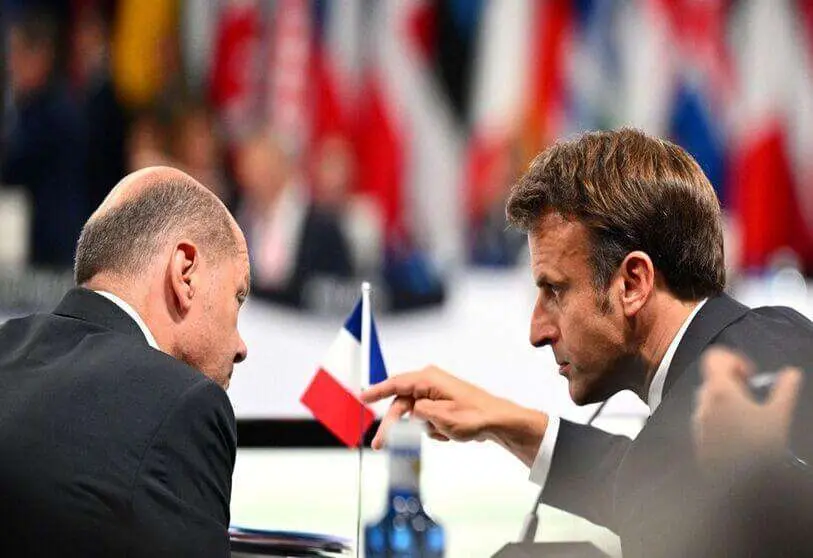
President Emmanuel Macron and Chancellor Olaf Scholz have punched their fists on the table and called the leaders of their respective aerospace industries to order. They want them to immediately resolve their differences and get the FCAS, the Future Combat Air System programme, in which Spain also participates, flying again.
The FCAS has been stalled for more than a year because of serious disagreements between the interests of French aircraft manufacturer Dassault Aviation, personified by the company's 62-year-old CEO since 2013, Eric Trappier, and those of his German counterpart, Michael Schoellhorn, 55, who has captained Airbus Defence and Space GmbH since July 2021.
The dispute that is preventing the industrial contract from being signed and which is forcing work on the nine technology pillars of the FCAS programme to be put on hold has one main reason: Trappier's refusal to share flight control system information and stealth technologies. As the main contractor for the development of the new aircraft, Dassault is hiding its position by claiming that it does not want Airbus to interfere in the management of its work as the main contractor for the future fighter.

But it looks like a solution is on the way in a few days. Emmanuel Macron and Olaf Scholz have decided to postpone their bilateral summit on 26 October in order to come to their annual meeting with their FCAS homework done. Also with agreements already concluded on other common military programmes of great relevance for defence, the economy and the creation of new jobs in both nations, especially for France.
In the new French government headed since May by Prime Minister Elisabeth Borne, President Macron gave the go-ahead for the replacement of his defence minister, Florence Parly, by Sébastien Lecornu. A colonel in the National Gendarmerie in the reserves and a pragmatic politician, Lecornu had been the head of the Overseas France portfolio in the government of Prime Minister Jean Castex since 2020.
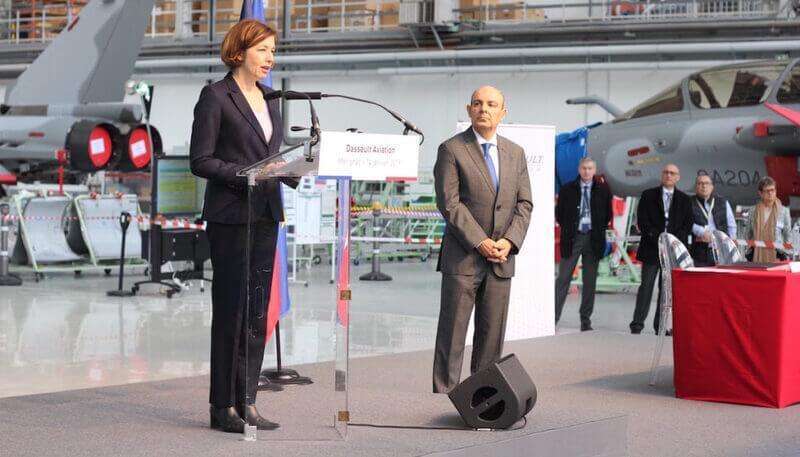
The President of the Republic has also given his blessing to the replacement of the head of the powerful Directorate-General for Armaments, the 67-year-old general engineer Joël Barre, who since August 2017 has been the composer of the music and lyrics of French defence industrial policy. His replacement as of 31 July is Emmanuel Chiva, 53, a civil engineer, PhD in biomathematics, specialist in artificial intelligence and biomimicry, who since his appointment to the post has been composing a score to be performed two-handed at the piano with his German partners.
The date of the Franco-German ministerial council will not be announced until the new defence ministers, Sébastien Lecornu, 36, and Christine Lambrecht, 57, see that Eric Trappier (Dassault) and Michael Schoellhorn (Airbus Germany) have settled their disagreements. With the settlement under their belts, it will be possible to sing success and smile in the family photograph on the façade of the Fontainebleau chateau, some 60 kilometres southeast of Paris, where the bilateral summit will be held.
In essence, a dovetailing of the two opposing positions will be possible if Dassault allows Airbus to have a greater presence in flight controls and radar-invisible technology. For the European corporation's German and Spanish subsidiaries, they will have to grant Trappier a larger industrial stake in other technological pillars of the programme, for example the combat cloud and drones that accompany and surround the FCAS.
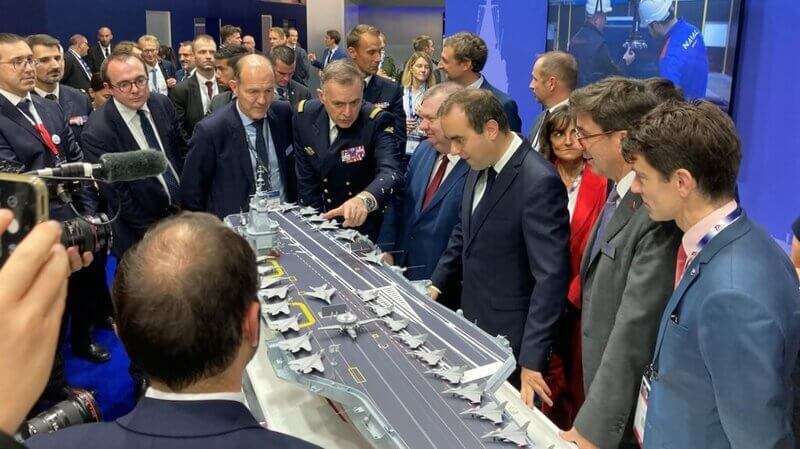
Paris has had to take up the gauntlet thrown down on 12 September by Bundeswehr Inspector General - equivalent to Spain's Chief of Defence Staff - General Eberhard Zorn before the German Bundestag's Council on Foreign Relations. "I want materials that fly, roll and are available on the market, not developments of European solutions that in the end do not work," General Zorn was adamant. As a matter of urgency, Ministers Lecornu and Lambrecht met in Berlin on 22 September to iron out differences, camouflaged by the topicality of the war in Ukraine.
The Spanish defence industry is impatiently waiting for Eric Trappier and Michael Schoellhorn to come to terms, so that it can restart its firm work, which has been on hold since the summer of 2021, and only to some extent maintained through small national contracts. The Secretary of State for Defence, Amparo Valcarce, recently confirmed before the members of the Defence Committee of the Spanish Congress that in the 2023 budget, "an item of 525.69 million euros is envisaged for the FCAS" and in R&D&I "contracts have just been awarded to Indra for 17 million euros and to Airbus Spain for another 14.7 million".
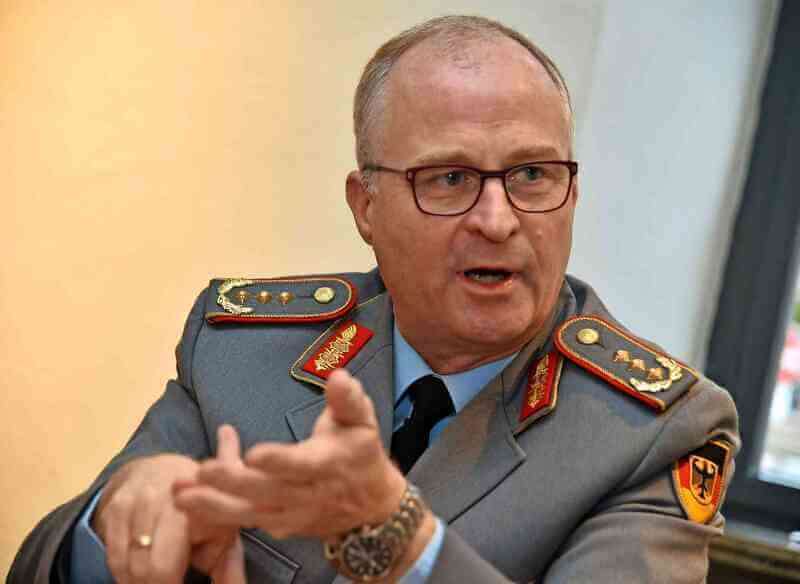
The FCAS programme has huge implications for strengthening the industrial, technological and defence sovereignty of Germany, France and Spain. The three nations signed the so-called Implementation Agreement No. 3 in Paris on 30 August 2021. The document was signed by Ministers Florence Parly (France) and Annegret Kramp-Karrenbauer (Germany) and the Spanish Secretary of State for Defence, at the time Esperanza Casteleiro, neither of whom were in office at the time.
The Implementation Agreement officially opened the door to phases 1B and 2 of the FCAS, which were to begin in the second half of 2021 with the development of the industrial technology plans needed to develop different demonstrators. It was to culminate in 2027 with the flight of a first demonstrator aircraft. But Airbus-Dassault disagreements have stalled it. Now there is confidence that the long-awaited agreement and take-off will be reached, which means changes to the timetable.

But there are more major projects in contention. The largest ground armament programme between Germany and France - in which Spain is not involved - is also blocked, namely the MGCS (Main Ground Combat System). The tensions are between the French company Nexter and the German company Rheinmetall, despite the fact that the defence ministries of both countries have already agreed on the initial concept of use of what is to be the successor to the French Leclerc tank and the German Leopard 2.
With the Eurodrone on track and Italy and Spain on board, another joint programme that has fallen by the wayside and is unlikely to be rescued is the Maritime Airborne Warfare System, or MAWS. Its purpose is to find a single replacement for the French Navy's Atlantique 2 maritime patrol aircraft and the Luftwaffe's US-origin P-3C Orion. Berlin has opted for a dozen P-8A Poseidon aircraft from the American manufacturer Boeing, and the continuity of the programme is in question.
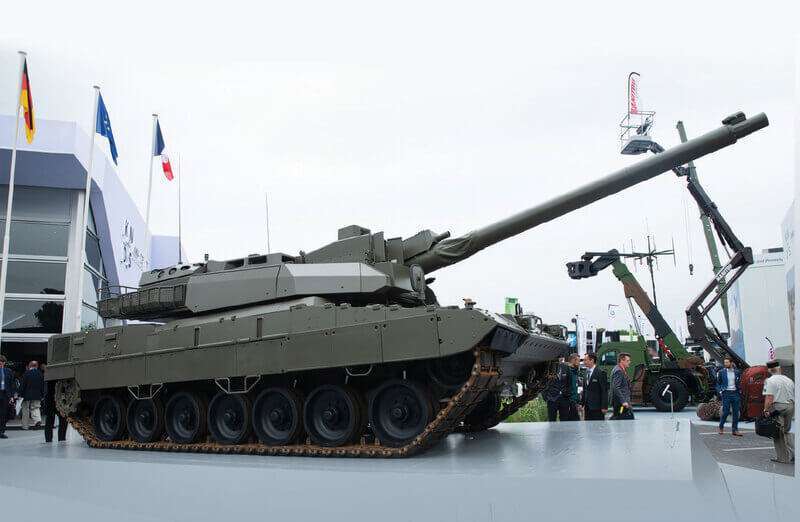
Macron would also like Chancellor Scholz, with the approval of the Bundestag, to take part in the development of the Mk-III configuration of the Tiger combat helicopter being pursued by France and Spain. Germany decided to delay its presence and later decided not to take part in the modernisation programme, despite the fact that its army has this model of helicopter. On 21 December, the Spanish Council of Ministers authorised an investment of 1.185 billion euros to refurbish the Tigre of the Spanish Army Air Mobile Forces (FAMET), which will be carried out at the Airbus Helicopters factory in Albacete.
The 2nd Chief of Staff of the French Army, Lieutenant General Hervé Gomart, has confirmed that of the 67 Tiger helicopters in the French fleet, 25 will not be upgraded to Mk-III standard if the Bundeswehr does not participate in the programme with all or part of its 53 Tigers. It will soon be clear whether Chancellor Olaf Scholz will finally give in and also convince his Bundestag.











